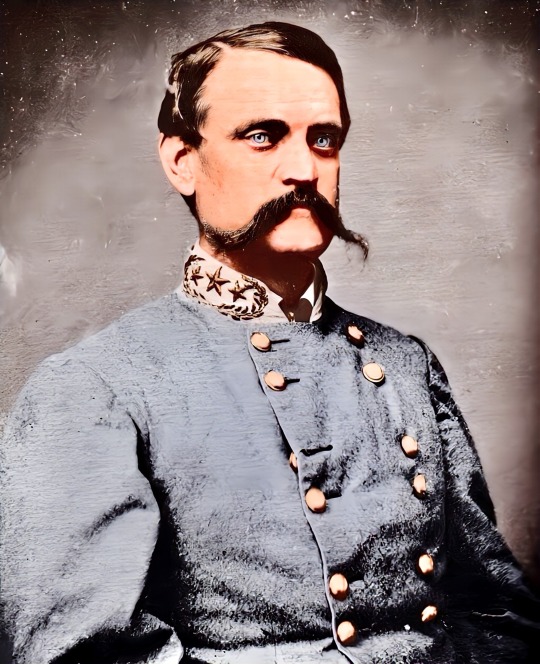#john c breckinridge
Explore tagged Tumblr posts
Text

Deeply unserious app
26 notes
·
View notes
Note
I know it is still early but do you know if there is any interesting history facts about the new president and vp
I'm still a little dazed and trying to wrap my head around the position the American voters have put us in for the years to come, so you'll have to give me a little more time to put everything into more historical context, but there a few quick tidbits to mention.
The obvious historical tidbit was the one everyone had already been talking about: Trump is the second President to win non-consecutive terms in the White House, after Grover Cleveland, who won the 1884 election (against James G. Blaine), lost the 1888 election to Benjamin Harrison, and then defeated Harrison in 1892.
The ages of Trump and Vance also stand out. Trump will be the oldest President ever inaugurated when he is sworn in: Biden was 78 years, 61 days old when he took office in January 2021; Trump will be 78 years, 220 days old. After Inauguration Day, these will be the five oldest Presidents at the beginning of their term: 1. Donald Trump (2nd Administration): 78 years, 220 days 2. Joe Biden: 78 years, 61 days 3. Donald Trump (1st Administration): 70 years, 220 days 4. Ronald Reagan: 69 years, 349 days 5. William Henry Harrison: 68 years, 23 days
Vance is on the other end of the spectrum. He'll be the third-youngest Vice President in history when he is sworn in. Here's what the list of five youngest VPs in history will look like after Inauguration Day: 1. John C. Breckinridge: 36 years, 47 days 2. Richard Nixon: 40 years, 11 days 3. JD Vance: 40 years, 171 days 4. Dan Quayle: 41 years, 351 days 5. Theodore Roosevelt: 42 years, 128 days
And the age difference between Trump and Vance is, by a significant margin, the biggest age difference between a President and Vice President in American history. Trump is 38 years, 49 days older than Vance -- in fact, Trump is almost twice Vance's age. The next biggest age difference was James Buchanan, who was 29 years, 273 days older than his Vice President, John C. Breckinridge.
#2024 Election#Presidential History#History#Presidential Stats#Presidential Data#Presidential Statistics#Donald Trump#President Trump#JD Vance#James Buchanan#President Buchanan#John C. Breckinridge#Vice President Breckinridge#POTUS/VP Comparative Data#Presidents#Vice Presidents
24 notes
·
View notes
Text
18.01 Central European Time
TRUMP HA GIURATO
E' il 47/o presidente degli Stati Uniti
Ora è ufficialmente (e nuovamente, ndr) il commander in chief. Con i suoi 78 anni, è il presidente più vecchio ad aver giurato (l'avreste mai detto al confronto col Biden? ndr).
Trump ha giurato sulla bibbia usata da Abraham Lincoln nel 1861 e su una che gli è stata regalata dalla madre nel 1955, quando il presidente eletto aveva solo nove anni.
Un minuto prima ha giurato il VicePresidente Jd Vance. Con i suoi 40 anni è il secondo più giovane VP di sempre (tal John C. Breckinridge aveva 36 anni quando fu nominato nel 1857).
via https://www.ansa.it/sito/notizie/mondo/2025/01/20/inauguration-day-trump-ha-giurato-e-il-47o-presidente-degli-stati-uniti-live_58415184-0a79-4577-b3a1-2eb823d8eb71.html
10 notes
·
View notes
Text

Menu Monday: Under this menu, found in a scrapbook made by Charles F. W. McClure, Princeton Class of 1888, McClure wrote, "Dinner in Washington D.C. after which the men whose names appear on the back of this card went to the White House & were introduced to Pres. Cleveland by Congressman Breckinridge of Kentucky."
"Congressman Breckinridge" was Clifton R. Breckinridge, the son of Confederate General John C. Breckinridge.
Scrapbook Collection (AC026), Box 126
The entire Menu Monday series
7 notes
·
View notes
Text
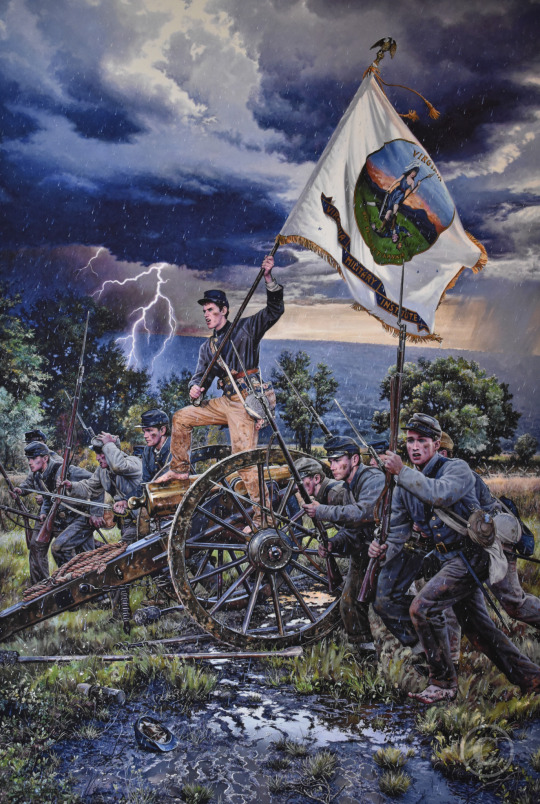
The year was 1864, and for three years the Federal Army had tried everything to defeat the Confederate forces. Many battles had been fought with both sides winning and losing. Casualty counts were far beyond what anyone had considered possible. General Lee's Army of Northern Virginia had lost a major battle at Gettysburg, but the South's willingness to fight for their independence had not diminished.
Federal strategy began to focus on destroying the South's infrastructure which supplied Confederate forces in the field. In May, Federal General Franz Sigel's army began its march from Winchester, intent on destroying the Virginia Central Railroad located in Staunton. If successful, General Lee's Army would no longer receive the rich stores and supplies from the Shenandoah Valley.
To stop the Federal advance, the sparse Confederate forces under the command of General John C. Breckinridge and General John D. Imboden gathered all the troops they could muster. The Virginia Military Institute's Superintendent Francis Smith was asked if his "School Boy Soldiers" would fall in. Taught from the very beginning at VMI the principles of duty and honor, the young men were eager to prove their worth as soldiers. The cadets marched for 4 days covering 80 muddy miles from Lexington to New Market in the drenching rain.
The battle of New Market began in earnest on the stormy morning of the 15th with lightning, thunder, and cannon fire echoing across the valley. General Breckinridge had not wanted to deploy his 250 young VMI cadets, and held them in a reserve position on the battlefield. But when a large gap opened in the center line of battle, Breckinridge with tears in his eyes said, "Put the boys in, and may God forgive me for the order."
As the boys moved forward behind their colors the storm greatly intensified, with lightning, thunder and driving rain. Now in the eye of the storm, under heavy cannon and musket fire the cadets began taking casualties. Undeterred, they fought forward through a low section of the field with standing water and deep mud, with a number of the boys losing their socks and shoes. A 12 pound Napoleon cannon was abandoned in the face of the cadet's charge, which the cheering boys captured. A Confederate officer watching the cadets said their charge "surpassed anything that I witnessed during the war."
General Breckinridge would later ride to their position and say "Young gentlemen, I have you to thank for the result of today's operations. Well done, Virginians...well done men!"
The actions of those brave cadets fulfilled the motto of VMI, and would be remembered daily from that day forward. "In Bellō Praesidium - In War A Tower Of Strength".
6 notes
·
View notes
Text
Events 11.13 (before 1970)
1002 – English king Æthelred II orders the killing of all Danes in England, known today as the St. Brice's Day massacre. 1093 – Battle of Alnwick: in an English victory over the Scots, Malcolm III of Scotland, and his son Edward, are killed. 1160 – Louis VII of France marries Adela of Champagne. 1642 – First English Civil War: Battle of Turnham Green: The Royalist forces withdraw in the face of the Parliamentarian army and fail to take London. 1715 – Jacobite rising in Scotland: Battle of Sheriffmuir: The forces of the Kingdom of Great Britain halt the Jacobite advance, although the action is inconclusive. 1775 – American Revolutionary War: Patriot revolutionary forces under Gen. Richard Montgomery occupy Montreal. 1833 – Great Meteor Storm of 1833. 1841 – James Braid first sees a demonstration of animal magnetism by Charles Lafontaine, which leads to his study of the subject he eventually calls hypnotism. 1851 – The Denny Party lands at Alki Point, before moving to the other side of Elliott Bay to what would become Seattle. 1864 – American Civil War: The three-day Battle of Bull's Gap ends in a Union rout as Confederates under Major General John C. Breckinridge pursue them to Strawberry Plains, Tennessee. 1887 – Bloody Sunday clashes in central London. 1901 – The 1901 Caister lifeboat disaster. 1914 – Zaian War: Berber tribesmen inflict the heaviest defeat of French forces in Morocco at the Battle of El Herri. 1916 – World War I: Prime Minister of Australia Billy Hughes is expelled from the Labor Party over his support for conscription. 1917 – World War I: beginning of the First Battle of Monte Grappa (in Italy known as the "First Battle of the Piave"). The Austro-Hungarian Armed Forces, despite help from the German Alpenkorps and numerical superiority, will fail their offensive against the Italian Army now led by its new chief of staff Armando Diaz. 1918 – World War I: Allied troops occupy Constantinople, the capital of the Ottoman Empire. 1922 – The United States Supreme Court upholds mandatory vaccinations for public school students in Zucht v. King. 1927 – The Holland Tunnel opens to traffic as the first Hudson River vehicle tunnel linking New Jersey to New York City. 1940 – Walt Disney's animated musical film Fantasia is first released at New York's Broadway Theatre, on the first night of a roadshow. 1941 – World War II: The aircraft carrier HMS Ark Royal is torpedoed by U-81, sinking the following day. 1942 – World War II: Naval Battle of Guadalcanal: U.S. and Japanese ships engage in an intense, close-quarters surface naval engagement during the Guadalcanal Campaign. 1947 – The Soviet Union completes development of the AK-47, one of the first proper assault rifles. 1950 – General Carlos Delgado Chalbaud, President of Venezuela, is assassinated in Caracas. 1954 – Great Britain defeats France to capture the first ever Rugby League World Cup in Paris in front of around 30,000 spectators. 1956 – The Supreme Court of the United States declares Alabama laws requiring segregated buses illegal, thus ending the Montgomery bus boycott. 1965 – Fire and sinking of SS Yarmouth Castle, 87 dead. 1966 – In response to Fatah raids against Israelis near the West Bank border, Israel launches an attack on the village of As-Samu. 1966 – All Nippon Airways Flight 533 crashes into the Seto Inland Sea near Matsuyama Airport in Japan, killing 50 people. 1969 – Vietnam War: Anti-war protesters in Washington, D.C. stage a symbolic March Against Death.
0 notes
Text
Trump and History: Ignorance and Denial
Ever since Donald Trump became President I have believed his greatest threat to our society and to our democracy is not necessarily his authoritarianism, but his essential ignorance - of history, of policy, of political process, of the Constitution. Saying that if Andrew Jackson had been around we might not have had the Civil War is like saying that one strong, aggressive leader can shape, prevent, or move history however he wishes well into the future. Leadership does matter in crises. It truly mattered that Abraham Lincoln was President in 1861 and not Stephen Douglas or John C. Breckinridge. It truly mattered that Franklin Roosevelt won the election of 1932 and at least had a new plan to help the country fight its way out of the Great Depression. It truly mattered that John Kennedy and a small group around him were determined to act short of nuclear war in the Cuban Missile Crisis of 1962. Those three Presidents and the advisors around them were students of history in their own ways. Presidents adrift without historical knowledge are dangerous.
1 note
·
View note
Text
Year of Meteors
In this book, Professor Douglas Egerton tells how Abraham Lincoln and Stephen A. Douglas conducted their respective campaigns for president, as well as discussing the campaigns of John C. Breckinridge and John Bell. He takes us from the nominating conventions through to the election and Lincoln’s selecting his cabinet. In describing Stephen A. Douglas, he writes, “The senator’s first wife, Martha…

View On WordPress
0 notes
Text
On this day in Wikipedia: Tuesday, 16th January
Welcome, dobrodošli, benvingut, bienvenue 🤗 What does @Wikipedia say about 16th January through the years 🏛️📜🗓️?

16th January 2022 🗓️ : Death - Ibrahim Boubacar Keïta Ibrahim Boubacar Keita, Former Malian President (b. 1945) "Ibrahim Boubacar Keïta (French: [ibʁa.im bubakaʁ ke.ita]; 29 January 1945 – 16 January 2022), often known by his initials IBK, was a Malian politician who served as the president of Mali from September 2013 to August 2020, when he was forced to resign in the 2020 Malian coup d'état. He served as..."
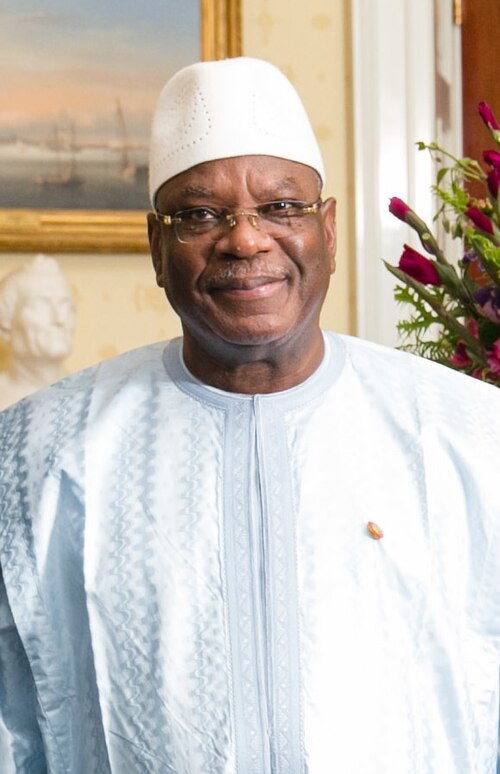
Image by Office of the White House (Amanda Lucidon)
16th January 2019 🗓️ : Death - Lorna Doom Lorna Doom, American musician (b. 1958) "Lorna Doom (born Teresa Marie Ryan, January 4, 1958–January 16, 2019) was an American musician best known as the bass guitarist for the punk rock band the Germs from 1976 to 1980, and again after they got back together from 2005 to 2009...."

Image licensed under CC BY-SA 2.0? by mirwav
16th January 2014 🗓️ : Death - Ruth Duccini Ruth Duccini, American actress (b. 1918) "Ruth Leone Duccini (née Robinson; July 23, 1918 – January 16, 2014) was an American actress...."
16th January 1974 🗓️ : Birth - Kate Moss Kate Moss, English model and fashion designer "Katherine Ann Moss (born 16 January 1974) is a British model. Arriving towards the end of the "supermodel era", Moss rose to fame in the early 1990s as part of the heroin chic fashion trend. Her collaborations with Calvin Klein brought her to fashion icon status. She is known for her waifish figure,..."

Image licensed under CC BY 3.0? by Crooked House Films
16th January 1924 🗓️ : Birth - Katy Jurado Katy Jurado, Mexican actress (d. 2002) "María Cristina Estela Marcela Jurado García (16 January 1924 – 5 July 2002), known professionally as Katy Jurado ( jə-RAH-doh, Spanish: [ˈkati xuˈɾaðo]), was a Mexican actress. Jurado began her acting career in Mexico during the Golden Age of Mexican cinema. In 1951, she was recruited by American..."
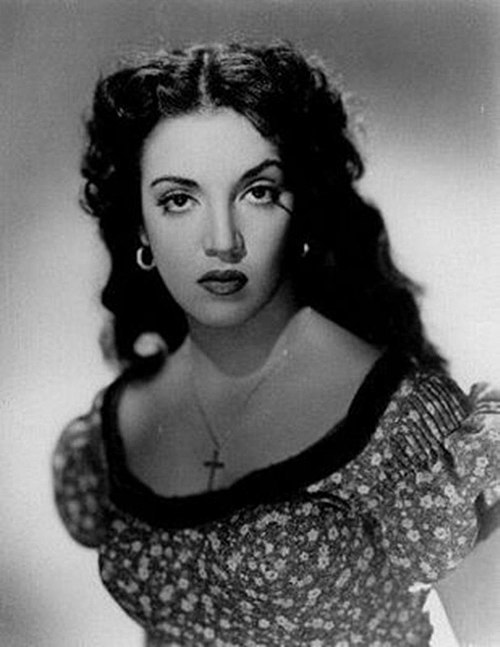
Image by Promotional picture of the film (Republic Pictures)
16th January 1821 🗓️ : Birth - John C. Breckinridge John C. Breckinridge, American general and politician, 14th Vice President of the United States (d. 1875) "John Cabell Breckinridge (January 16, 1821 – May 17, 1875) was an American lawyer, politician, and soldier. He represented Kentucky in both houses of Congress and became the 14th and youngest-ever vice president of the United States. Serving from 1857 to 1861, he took office at the age of 36. He was..."
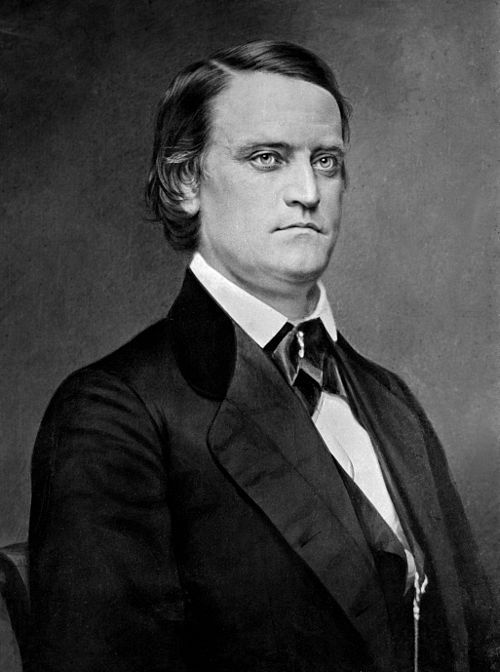
Image by Mathew Benjamin Brady
16th January 🗓️ : Holiday - Christian feast day: Fursey "Saint Fursey (also known as Fursa, Fursy, Forseus, and Furseus: died 650) was an Irish monk who did much to establish Christianity throughout the British Isles and particularly in East Anglia. He reportedly experienced angelic visions of the afterlife. Fursey is one of the Four Comely Saints. ..."

Image
0 notes
Text
Is it just me or does John Breckinridge look like a long lost member of Addams family 😭

#i hate this mf so much#rot#antebellum#antebellum-ish?#close enough#jcb#john c breckinridge#pls say I spelled his name right
7 notes
·
View notes
Note
what do you think the chances are of a 35 year old president some day?
It's not impossible, but probably unlikely. Unfortunately, it's always going to be difficult for a 35-year-old candidate to have built up the political organization and harvest enough political and financial connections to be ready for seeking a party's nomination at that age. I don't think a 35-year-old would necessarily be less ready than an older candidate as long as the quality of their experiences was strong enough to complete with the length of experience that their opponent might have.
I think the average age of Presidents at the time of their first inauguration is around 55 years old, but we've had nine Presidents who took office before they turned 50 years old: •Theodore Roosevelt: 42 years, 322 days •John F. Kennedy: 43 years, 236 days •Bill Clinton: 46 years, 154 days •Ulysses S. Grant: 46 years, 311 days •Barack Obama: 47 years, 169 days •Grover Cleveland: 47 years, 351 days •Franklin Pierce: 48 years, 101 days •James A. Garfield: 49 years, 105 days •James K. Polk: 49 years, 122 days And of those nine Presidents under 50 years old, eight of them were elected directly to the Presidency. Only Theodore Roosevelt succeeded to the office from the Vice Presidency, and when he was elected President in his own right in 1904 and inaugurated for his elected term, he was still younger (46 years, 128 days) than every other President in history other the JFK. So despite the age of the major party nominees in the last couple of elections, this country has elected quite a few relatively young Presidents.
We've also elected a lot of young Vice Presidents and the Vice Presidency, of course, is always just a heartbeat away from the main gig. There have been twelve (12) Vice Presidents inaugurated before they turned 50 years old, and three others took office before turning 51. The average age (on Inauguration Day) of the Vice Presidents is roughly the same as the average age of Presidents, but two Vice Presidents were elected in their 30s. John C. Breckinridge, who was Vice President under James Buchanan (1857-1861), was only 36 years, 42 days old when he was inaugurated, so he was barely old enough to meet the Constitutional age qualifications for the Presidency and Vice Presidency. And Richard Nixon was only 39 years old when he was first elected as Dwight D. Eisenhower's Vice President in 1952. Nixon celebrated his 40th birthday right before he was inaugurated as Vice President and was 40 years, 11 days old on Inauguration Day.
Part of the reason that both Breckinridge and Nixon were chosen as VP was to balance out the ticket due to the "advanced" age of their running mates. When Nixon was nominated alongside General Eisenhower in 1952, there were questions about whether or not Eisenhower might be too old for the Presidency. Eisenhower was 62 years, 98 days old when he was inaugurated -- nearly 20 years younger than President Biden and 17 years younger than Donald Trump. In fact, when he was first inaugurated, Dwight Eisenhower was younger than George Clooney currently is:

So that's a long way and a lot of information shared for me to come back to the point that it's not impossible, but pretty unlikely for a 35-year-old to be elected President. I think there's a better chance that someone that age would be elected Vice President.
#History#Presidents#Inauguration#Age at Inauguration#Presidency#Vice Presidents#Vice Presidency#Age of the Presidents#Age of the Vice Presidents#VP#POTUS#Youngest Vice Presidents#Youngest Presidents#Richard Nixon#President Nixon#Vice President Nixon#John C. Breckinridge#Vice President Breckinridge#Presidential Eligibility#George Clooney#Dwight Eisenhower#President Eisenhower#Running Mates#Politics#Elections#Presidential Elections#Presidential Candidates#Presidential Politics
13 notes
·
View notes
Text
A Complete History of the Democratic Party Everything about the Democrats
hi, this is Mohammad qolami and In this video I'm going to talk about Democratic Party. All about Democratic Party. Don't forget to subscribe me.
The Democratic Party is one of the two major political parties in the United States, alongside the Republican Party. The party was founded in 1828 by supporters of Andrew Jackson, who served as the seventh President of the United States from 1829 to 1837. The Democratic Party has a long and complex history, marked by periods of both success and failure.
The early years of the Democratic Party were characterized by a focus on expanding democracy and promoting individual rights. This included support for universal suffrage, opposition to slavery, and advocacy for economic policies that would benefit working-class Americans. During this time, the party was also closely associated with southern states and their interests.
In the mid-19th century, tensions within the Democratic Party began to emerge over issues related to slavery and states' rights. These tensions ultimately led to a split in the party during the 1860 presidential election, with northern Democrats supporting Stephen Douglas and southern Democrats supporting John C. Breckinridge. This split helped pave the way for Abraham Lincoln's victory in that election.
Following the Civil War, Democrats struggled to regain power at both the national and state levels. The party's fortunes began to improve in the late 19th century under leaders like Grover Cleveland and William Jennings Bryan, who championed progressive causes such as labor rights and anti-imperialism.
In the early 20th century, Democrats continued to push for progressive reforms such as women's suffrage, child labor laws, and social welfare programs. The New Deal era of Franklin D. Roosevelt saw a significant expansion of government programs aimed at addressing poverty and unemployment during the Great Depression.
During this time period, Democrats also became more closely associated with civil rights issues. In particular, President Lyndon B. Johnson signed into law several landmark pieces of legislation aimed at ending racial discrimination in areas such as voting rights and housing.
In recent decades, Democrats have continued to advocate for progressive policies on issues such as healthcare, education, and the environment. The party has also become more diverse, with increasing numbers of women, people of color, and members of the LGBTQ+ community running for office and holding positions of power within the party.
Today, the Democratic Party is known for its support of policies such as universal healthcare, a higher minimum wage, and stronger environmental protections. The party is also committed to promoting social justice and equality for all Americans.
In terms of its leadership structure, the Democratic Party is led by a national committee that includes elected officials and party leaders from across the country. The party's presidential nominee is chosen through a series of primary elections and caucuses held in each state.
Overall, the Democratic Party has played a significant role in shaping American politics over the past two centuries. While it has faced challenges and setbacks along the way, it remains a powerful force in American politics today.
Thanks for watching this video. Please don't forget to subscribe me.
youtube
0 notes
Text
Events 11.6 (before 1970)
447 – A powerful earthquake destroys large portions of the Walls of Constantinople, including 57 towers. 963 – Synod of Rome: Emperor Otto I calls a council at St. Peter's Basilica in Rome. Pope John XII is deposed on charges of an armed rebellion against Otto. 1217 – The Charter of the Forest is sealed at St Paul's Cathedral, London by King Henry III, acting under the regency of William Marshall, 1st Earl of Pembroke which re-establishes for free men rights of access to the royal forest that had been eroded by William the Conqueror and his heirs. 1792 – Battle of Jemappes in the French Revolutionary Wars. 1860 – Abraham Lincoln is elected the 16th president of the United States with only 40% of the popular vote, defeating John C. Breckinridge, John Bell, and Stephen A. Douglas in a four-way race. 1869 – In New Brunswick, New Jersey, Rutgers College defeats Princeton University (then known as the College of New Jersey), 6–4, in the first official intercollegiate American football game. 1900 – President William McKinley is re-elected, along with his vice-presidential running mate, Governor Theodore Roosevelt of New York. Republicans also swept the congressional elections, winning increased majorities in both the Senate and the House of Representatives 1936 – Spanish Civil War: The republican government flees from Madrid to Valencia, leading to the formation of the Madrid Defense Council in its stead. 1943 – World War II: The 1st Ukrainian Front liberates Kyiv from German occupation. 1947 – Meet the Press, the longest running television program in history, makes its debut on NBC Television. 1963 – Nguyễn Ngọc Thơ is appointed to head the South Vietnamese government by General Dương Văn Minh's junta, five days after the latter deposed and assassinated President Ngô Đình Diệm.
0 notes
Text
Eh, this is hardly unprecedented, and it goes way back. Literally the first time it could have happened, it happened. (That is: the second President of the US, John Adams, was the VP of the first President, George Washington.) And then it happened again literally the second time it was possible — the third President also oversaw the Electoral College count that put them in office.
I see Politico is trying to scaremonger that there is a “curse”, but that’s scaremongering. Wikipedia has a list of VPs who ran for President, but if you only count the ones who were a candidate in the same year they oversaw the Electoral Vote count, you are left with:
John Adams (won)
Thomas Jefferson (won)
Martin Van Buren (won)
John C. Breckinridge (lost, largely because his party had a schism and nominated two candidates)
Richard Nixon (lost that time, won when trying again later)
Hubert Humphrey (lost — to Richard Nixon, a former VP)
George H. W. Bush (won)
Al Gore (lost — but would have won if he had not conceded, since the eventually-completed recount of Florida would have flipped the state and given him a majority of the electoral college; a lesson not to back down and betray your base which the Democratic Party desperately needed and seems not to have learned yet)

35 notes
·
View notes
Text
John Breckinridge's Escape to Cuba
Here’s William C. “Jack” Davis giving an excellent talk on John C. Breckinridge’s journey after the Civil War to Cuba and then on to Canada. The video’s description reads, “Historian William ‘Jack’ Davis talked about former Vice President and later Confederate General John Breckinridge’s escape to Cuba after the collapse of the Confederacy in 1865. The Virginia Center for Civil War Studies at…
View On WordPress
0 notes
